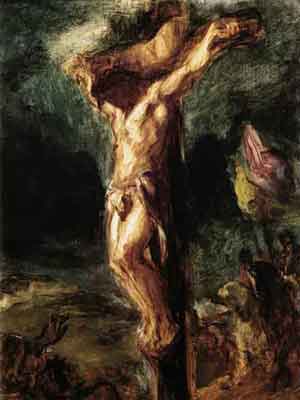Some men came carrying a paralyzed man on a sleeping mat. They tried to take him inside to Jesus, but they couldn’t reach him because of the crowd. So they went up to the roof and took off some tiles. Then they lowered the sick man on his mat down into the crowd, right in front of Jesus.
Luke 5:18-21 (NLT)
Seeing their faith, Jesus said to the man, “Young man, your sins are forgiven.”
But the Pharisees and teachers of religious law said to themselves, “Who does he think he is? That’s blasphemy! Only God can forgive sins!”
The word “sin” has mostly disappeared from our vocabulary. You might still hear it used ironically, but rarely seriously, unless you frequent a fairly conservative type of Christian church. Even among faith groups that believe the word has meaning, one gets the sense that it’s considered rude to say it aloud.
When we recite the Lord’s prayer in worship services, we seem to prefer the version that speaks of forgiving our “debts” rather than our “sins.”

In these days when we soft-pedal so many harsh doctrines, sin is on the outs. We make mistakes, we commit errors of judgment, we experience failures. But sin? It’s such a black and white word, isn’t it? It seems judgy. It lacks the awareness that we’re all human, we’re all fallible, we’re trying really hard to be the best that we can be.
When public figures are forced to apologize, we often hear them say “that wasn’t like me,” or “I’m not really that person.” We sin, we’re caught, and we’re embarrassed, perhaps even ashamed, at least briefly. We want to distance ourselves from that person (ourselves) who did that thing that seems so wrong in retrospect.
And, to be kind, what is often meant by these sorts of apologies is “I want to be better than that.” Even weak apologies can be an acknowledgment that we didn’t live up to the standards of society, or perhaps even the inner laws and regulations of our own hearts.
We don’t like to talk about sin, or to think too deeply about it, but most of us can see within ourselves something ugly, something dark that leaps out of the depths when we wish it wouldn’t. Sin.
I find the story of Jesus and the paralytic intriguing. The Pharisees are incensed because, they claim, “only God can forgive sins.” Which implies, I think, that sins are ultimately an offence against God. But I don’t think of my sins that way. I do something to hurt my wife or my children or a friend, or even a complete stranger, and I figure that’s as far as it goes. Why should God be offended? Why should I need God’s forgiveness?
The answer I’ve come up with is two-fold. First, we are God’s children and he is our heavenly Father. As the giver of life and the Creator of all that was and is and will be, we are literally his progeny. When I hurt one of his children, I disrespect God himself. Second, we’re told that we are in some mysterious way “created in God’s image”. We unknowingly carry God himself with us into the world wherever we go. So in a very real sense, my sins against others are an attack on God himself.
And this makes sense of one of Jesus’ teachings about the end times. He says that God will praise people for taking care of him when he was hungry, thirsty, lacking clothes, sick, and imprisoned. Confused about this, the people will ask, “When did we do this?”
“And the King will say, ‘I tell you the truth, when you did it to one of the least of these my brothers and sisters, you were doing it to me!’”
Matthew 25:40 (NLT)
If our kindnesses and mercies towards each other are seen by God as kindnesses done to himself, than surely our sins against each other are equally sins against God. There is no apology we can offer that will be sufficient to make things right. Which is not to say that we don’t owe each other sincere apologies, as well as acts of contrition and restitution when we hurt each other. What it means is that our horizontal offences are also vertical.
Therefore, our sin puts us in a position where we need an intercessor to make things right with God, our heavenly Father. Our sins pile up insults and offences against our Father and Creator. Who can make things right for us? What acts of repentance can we perform that will be sufficient to make right the harms we’ve done?
We have such an Intercessor, someone who can empathize because he has lived among us, but yet has not sinned: Jesus, our Redeemer.




Comment Policy: All comments are subject to moderation. Your words are your own, but AnotherThink is mine, so I reserve the right to censor language that is uncouth or derogatory. No anonymous comments will be published, but if you include your real name and email address (kept private), you can say pretty much whatever is on your mind. I look forward to hearing from you.